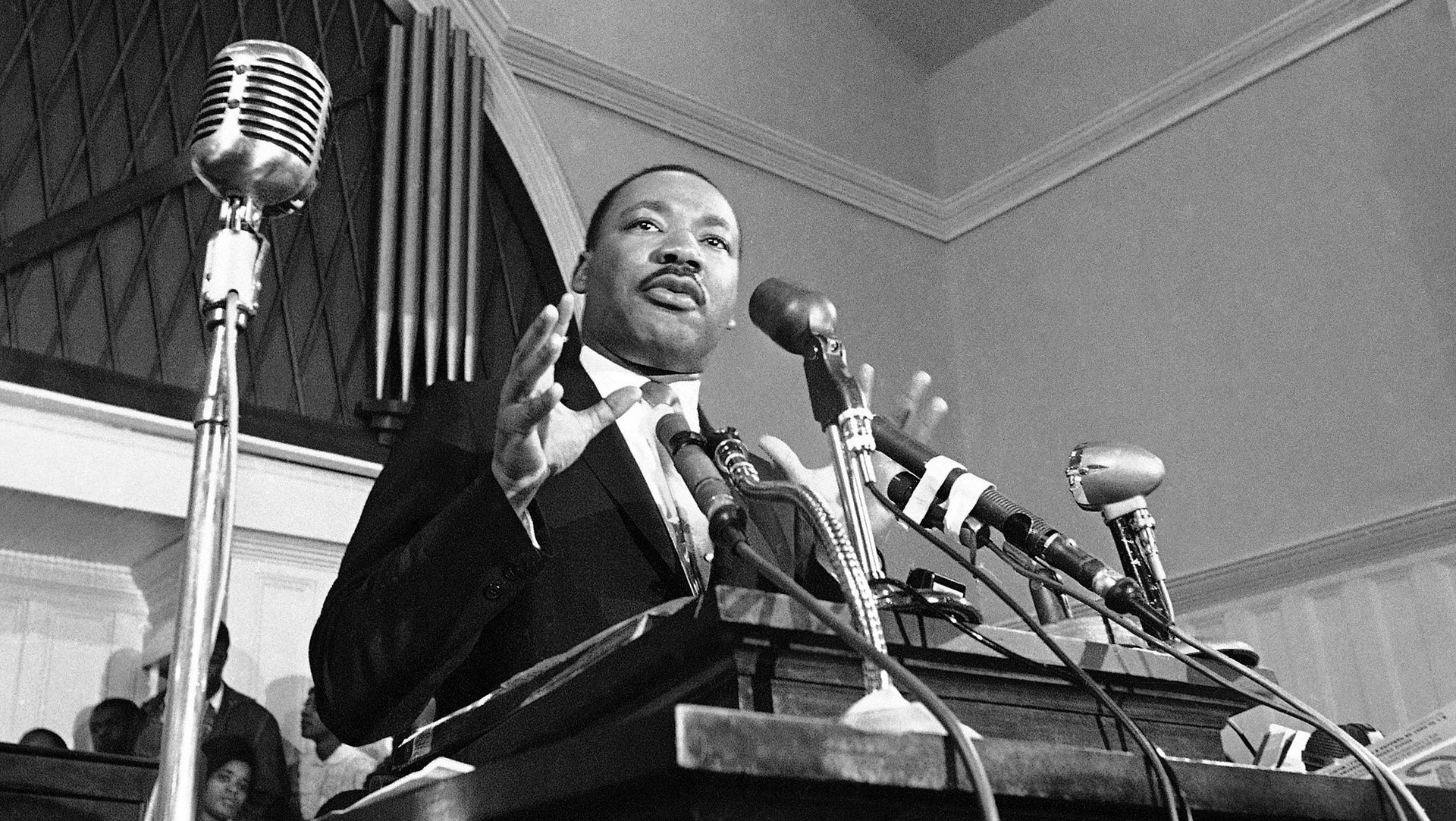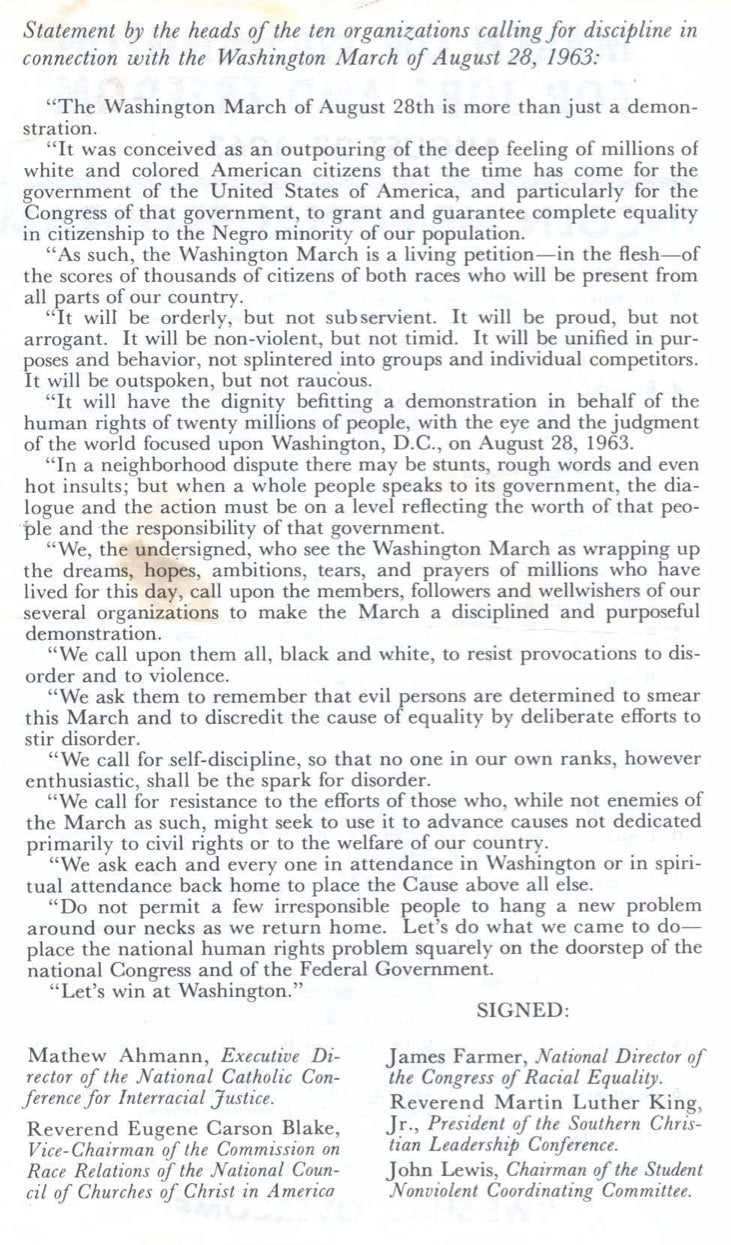A powerful guide to “going high” from a 1963 civil rights letter signed by Martin Luther King, Jr.
In 1963, hundreds of thousands of Americans packed their bags and bought bus tickets with one goal: To get to Washington, DC and exercise their First Amendment right to march peacefully.


In 1963, hundreds of thousands of Americans packed their bags and bought bus tickets with one goal: To get to Washington, DC and exercise their First Amendment right to march peacefully.
DC is blindingly hot in August, and the organizers of the now historic March for Jobs and Freedom knew that, like in any crowd, too much excitement could go badly. The 10 leaders of the march put together a pamphlet of the day’s agenda, and in it they included a statement on how attendees should conduct themselves. They urged grace under pressure, firmness without violence.
As an expected 200,000 people prepare to march in the US capitol on Jan. 21, the day after the inauguration of president-elect Donald Trump, that pamphlet is a reminder that critics could use pettiness and violence to discredit the marchers. US first lady Michelle Obama picked up on that thought in her speech last July: “When they go low, we go high.”
Wrote Martin Luther King, Jr., John Lewis, Roy Wilkins, and the seven other signees:
It will be orderly, but not subservient. It will be proud, but not arrogant. It will be nonviolent, but not timid. It will be unified in purposes and behavior, not splintered into groups and individual competitors. It will be outspoken, but not raucous.
They urged their participants to rise above the “hot insults” of the streets, a sentiment which could just as easily be said today about the level of discourse on Twitter:
In a neighborhood dispute, there may be stunts, rough words and even hot insults; but when a whole people speaks to its government, the dialog and the action must be on a level reflecting the worth of that people and the responsibility of that government.
They ended their letter, “Let’s win at Washington.”
See the full flyer below:

Another version of the pamphlet included details on logistics and what food to pack. The organizers suggested salad would be a bad choice, and peanut butter and jelly sandwiches might be more wise.